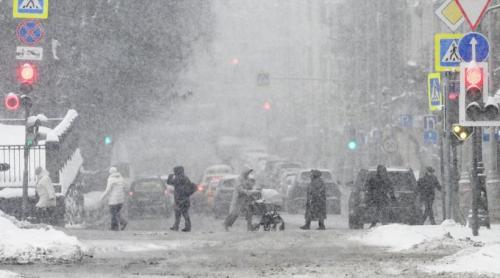
The rapid wage growth sends a negative signal to the business environment, says Parvan. The electoral gifts compete to endanger the economy of Romania.
The echoes of the wage increase by 50% for teachers and of the pensions in the previous campaign can still be heard, but another idea appeared: the increase by 100% of the minimum wage over the next four years, up to 1,600 lei.The idea astounded the management of the companies that believe that this rapid increase of wages and the approval of the wage scales based on unrealistic budget incomes threaten the economic stability.
"The confederation believes that the approval of the salary scales based on unrealistic budget incomes in the next 3-5 years, promoting the idea of the rapid increase in the minimum wage from 600 to 1,700 lei, in the next 2-3 years are threats against Romania's economic stability and an extremely negative signal sent to the business environment", says a press release of the National Confederation of Romanian Employers (CNPR).
CRISIS NIGHT DREAM
On April 23, Marian Sarbu, Minister of Labor, said the new salary scales in the budget will provide the growth of the low wages and the freezing of high wages. Also the minimum wage will go from 600 lei to 1,600 lei in 2013. "The law will not allow eccentric wages in the future. The minimum wage in the economy should arrive within four years, after the implementation of the new salary scales, to 50% of the average wage", said Sarbu last month.
At present, the minimum wage should increase by 250 lei for each of the next four years to reach the level the Minister of Labor talked about. The confederation requires the removal of the discrepancies between wage levels of different social categories, but the authorities want to create new jobs, not to create a generalized system of social protection.
YEARS LOST FOR NOTHING
If the social security will prevail, all the efforts to synchronize the contributions and the pensions, a process that was ponderous and implied many sacrifices, would be in vain. "CNPR believes that the Ministry of Labor must give high priority to creating jobs and ensuring income sources for the citizens of Romania based on work and not through a system of generalized social protection.
The arbitrary increase of small wages and pensions are no more than threats against the pension system and the economy in general", is shown in the press release.
Specifically, the 4.9 million employees in Romania will not be able to support financially "the unrealistic social engagements", and the end of the economic crisis will not come by increasing social security, but by investments and work places.
Translated by Sorin Bălan















